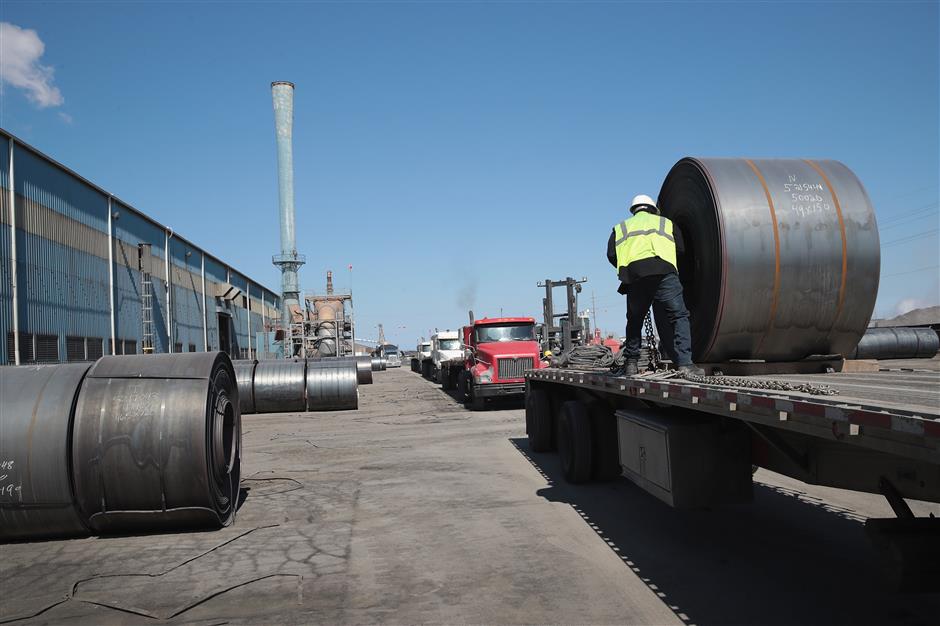US suspends metals tariffs for EU, 6 other economies

Steel is loaded onto a truck for shipping at the NLMK Indiana steel mill on March 15, 2018, in Portage, Indiana.
US President Donald Trump approved on Thursday the suspension of much-criticized tariffs on steel and aluminum imports from the European Union and six other economies.
The White House said that tariffs on steel and aluminum imports from EU member states, Argentina, Australia, Brazil, Canada, Mexico and South Korea are suspended until May 1, 2018.
"Each of these countries has an important security relationship with the United States," a proclamation from the president said.
These suspensions are based on factors including ongoing discussions, according to the White House. Trump will decide whether to continue to exempt these countries from the tariffs by the extended deadline.
Amid widespread dissent in business groups and trading partners around the world, Trump signed two weeks ago proclamations to impose tariffs of 25 percent on imported steel and 10 percent on aluminum, which take effect on Friday.
The official announcement followed US Trade Representative Robert Lighthizer's suggestion earlier Thursday that those economies be exempted.
Lighthizer told the Senate Finance Committee that there are countries involved in various stages of trade talks with the United States and that the president decided "to pause the imposition of tariffs with respect to those countries."
Since the proposal of the tariffs, many economies have warned Washington that they will retaliate if they are faced with tariffs on metals products.
EU Trade Commissioner Cecilia Malmstrom said that the economic bloc is "always willing to engage with our American partners, but we do not negotiate anything under pressure or threat."
During his presidential campaign, Trump promised to bring down the country's trade deficit, which totaled US$566 billion in 2017.
However, economists say that the tariffs are unlikely to bring the US current account in balance as the major cause of the trade imbalance lies in the fact that the US savings are low relative to investment.















